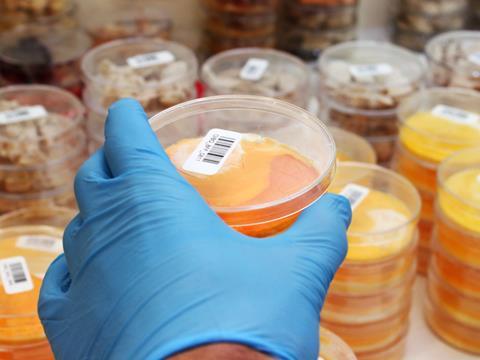
What are the most significant traceability challenges across the food supply chain and how can the industry address these? We spoke to Grant Cochrane, CEO of Oritain, to get his perspective on the subject.
PE: What would you identify as the biggest challenges in ensuring food safety across the supply chain?
GC: Global food supply chains are so complex that produce can cross several borders and change hands multiple times as it makes its way from farm to fork. Without adequate oversight or traceability, each exchange becomes an opportunity for food to be swapped with cheaper alternatives.
For manufacturers, retailers and consumers, this means putting faith in the food label – ground almonds secretly swapped for cheaper peanuts, for example, can have potentially fatal consequences for food allergy sufferers. However, labelling systems only go so far as tracking the packaging – without knowing the origin of raw materials, it is near impossible to ensure ingredients have not been altered.
Lack of visibility goes hand-in-hand with lack of accountability. With no concrete way of guaranteeing where ingredients are coming from, no one can be held responsible for when it goes wrong. With relatively few repercussions and poorly enforced regulation, food fraud will always be an attractive proposition for those looking to make quick money.
PE: What role can new technologies such as blockchain play to help with traceability?
GC: Blockchain has been introduced as a solution to supply chain traceability due to the perception that decentralised data eliminates the reliance on trust. However, blockchain is equally susceptible to fraud just like traditional methods, as data input still relies on trust to be able to work as a traceability solution.
Blockchain solutions for supply chains require all parties within the supply chain to be involved. Each party is responsible for inputting data at each stage of the supply chain, making the solution only as reliable and trustworthy as the people and companies using it – data on the product origin may be unknown or incorrectly entered.
The only way to truly verify origin is to test the product itself. Testing the naturally-occurring chemical elements of a product and comparing it to the chemical elements present in a genuine product sample from the farm of origin, can tell companies and consumers whether their product is exactly from where the label claims.
PE: Are there specific challenges around certain food groups?
GC: Generally, the difficulty in identifying fraud comes down to the complexity of the supply chain. The more steps there are in that chain between the various suppliers, manufacturers, retailers and consumers, the more risk there is for fraud to occur. With every link, you add another layer of complexity. Therefore, most food groups are at risk of fraud due to our globalised supply chain. For example, palm oil has an incredibly opaque supply chain, with retailers often unaware of where it has come from or been along its journey from supplier to manufacturer. The raw ingredient is often mixed with other sources before a manufacturer uses it for a specific product.
However, the scale and likelihood of fraud can vary. Food groups which are at higher risk, are usually commodity-based products or products which demand a higher value. For example, commodity-based products such as tea, coffee, and cocoa are often traded between multiple people, with the ultimate buyer being far removed from the physical product. This gives fraudsters ample opportunities to swap out the product for a cheaper alternative. At the same time, scarce, niche and raw materials command a higher premium, and, therefore, offer a greater incentive for fraudsters to counterfeit the product. These items include basmati rice, extra-virgin olive oil, balsamic vinegar, alcohol and certain high-end fish and primal meats.
PE: How can your company help address these issues?
GC: Trust is fundamental for a transparent and safe supply chain. To ensure this trust, the origin of products must be independently verified, something that technologies such as blockchain fail to do. Oritain uses forensic science to test and verify the origin of products with high precision. Its methods are independent and immutable. Every product has an intrinsic origin fingerprint, which can tell Oritain where it came from without the need for labels or barcodes, both of which can be altered or tampered with.
We work with supermarkets and food manufacturers to ensure the products they buy are from where the suppliers claim they’re from. A brand which uses Oritain’s services will be well positioned to demonstrate the authenticity of its products, insulating it from the fallout of a potential food scandal. Whilst, at the same time, protecting a company’s executives from being personally liable.













